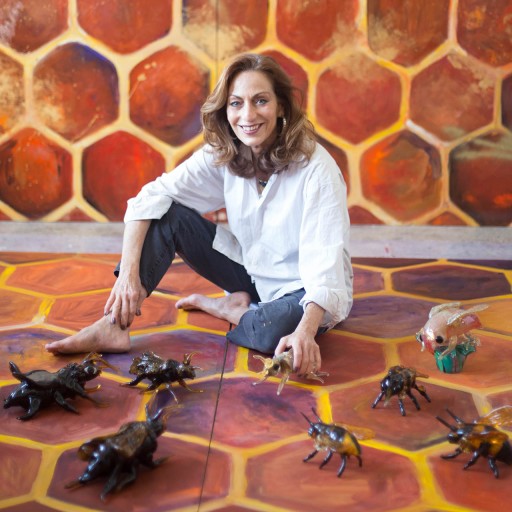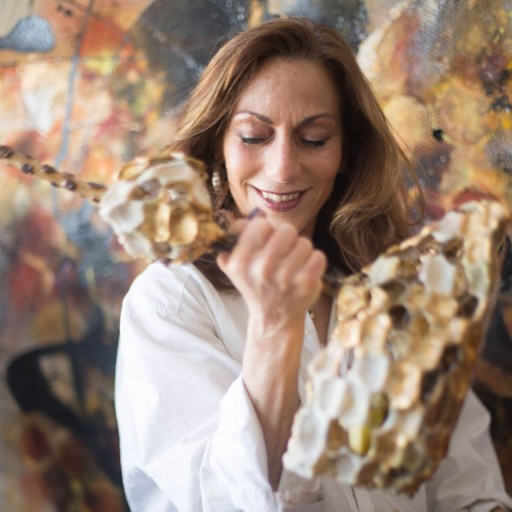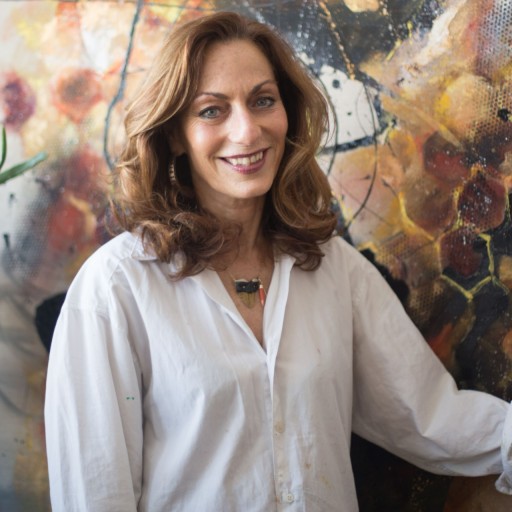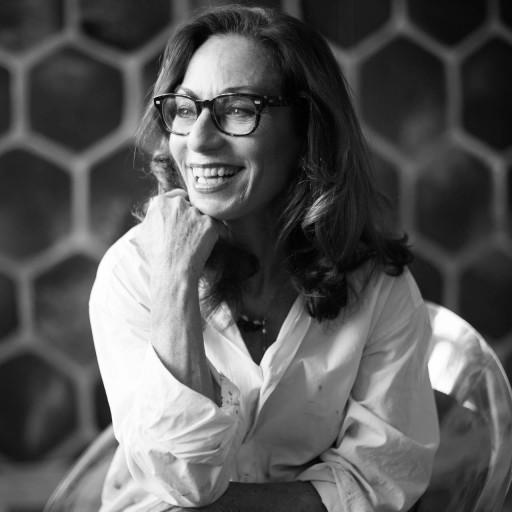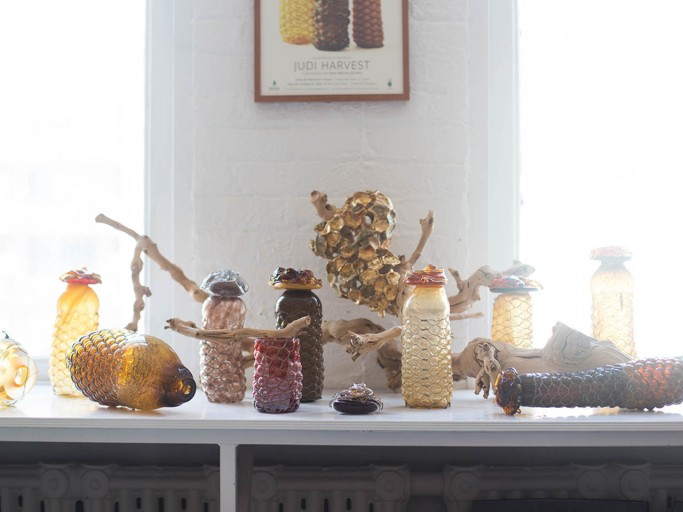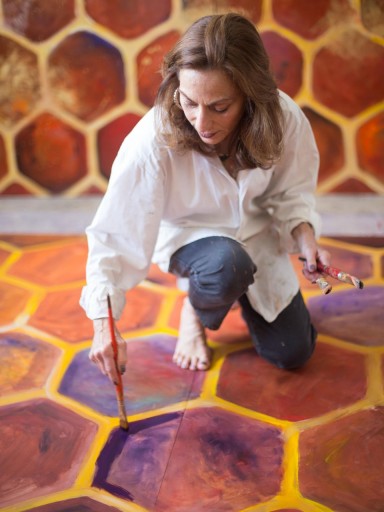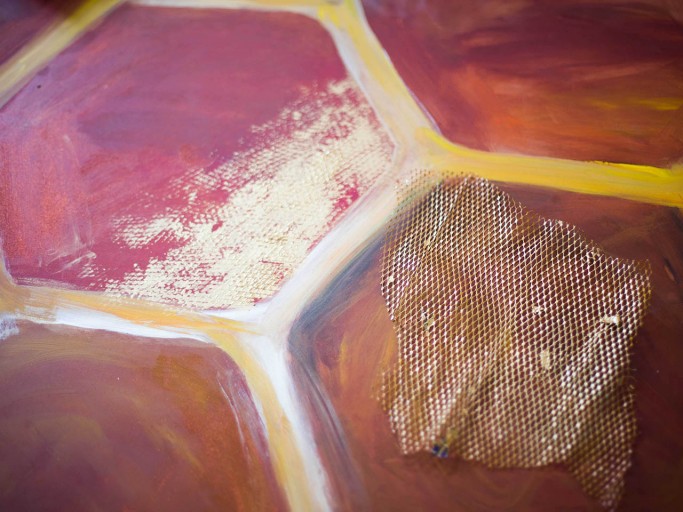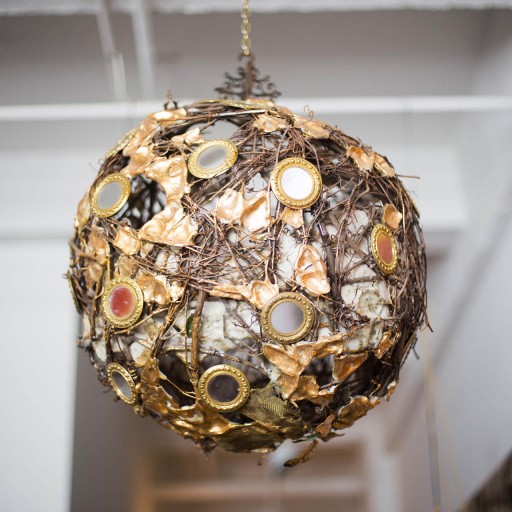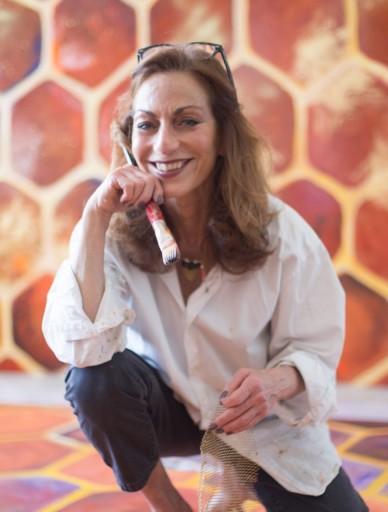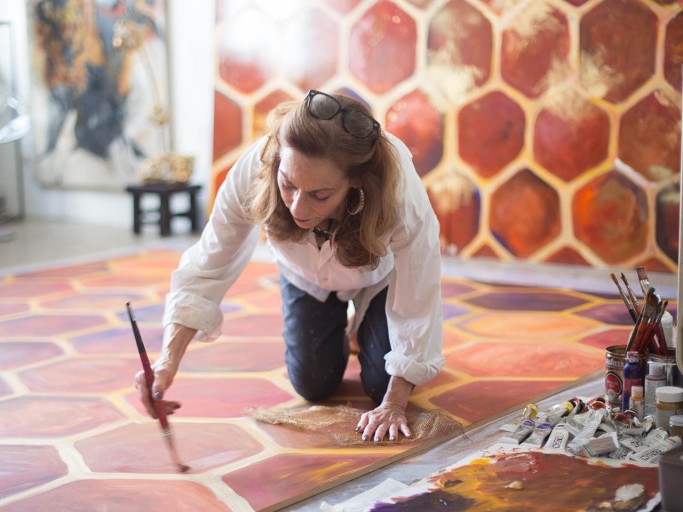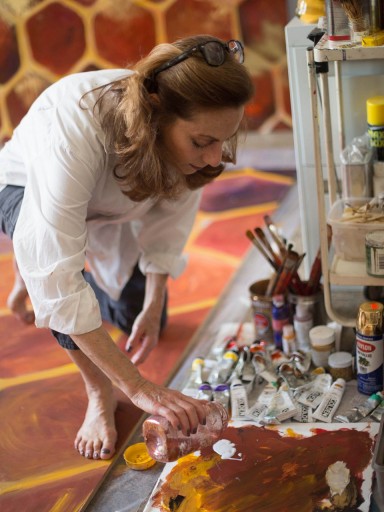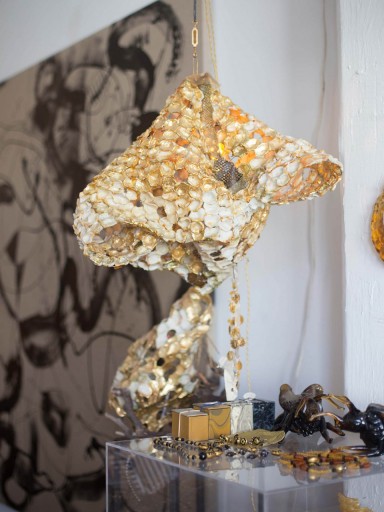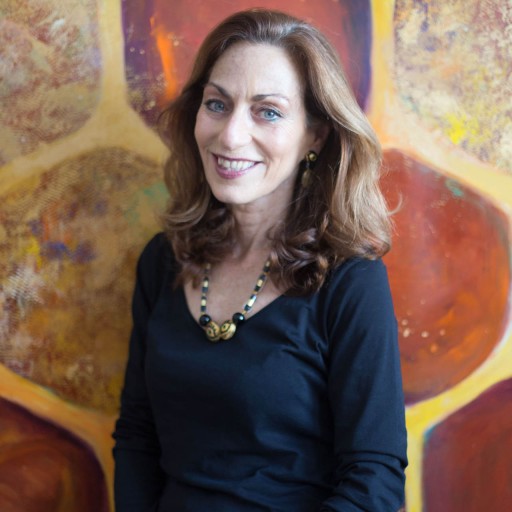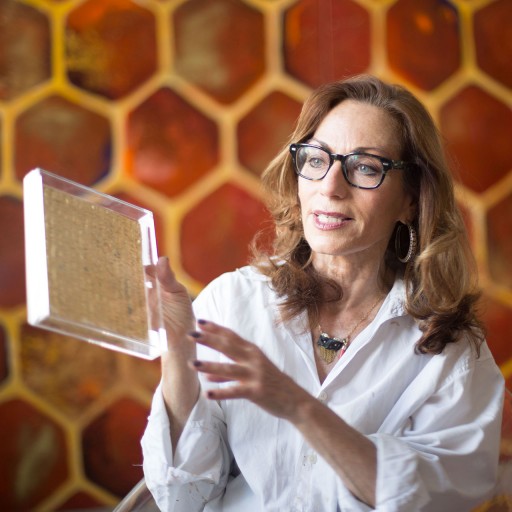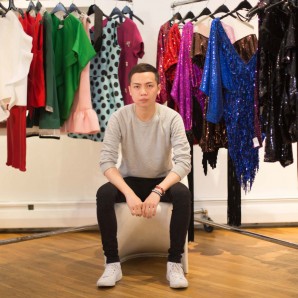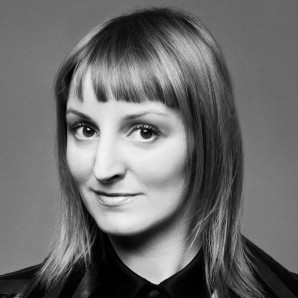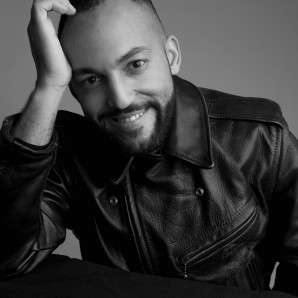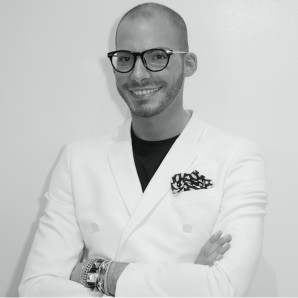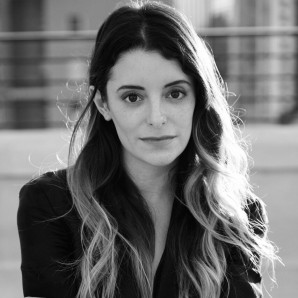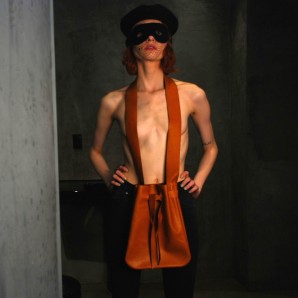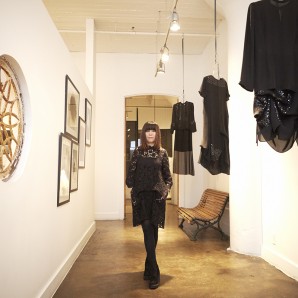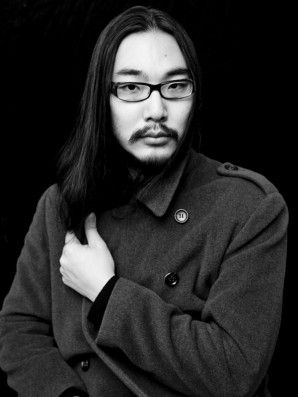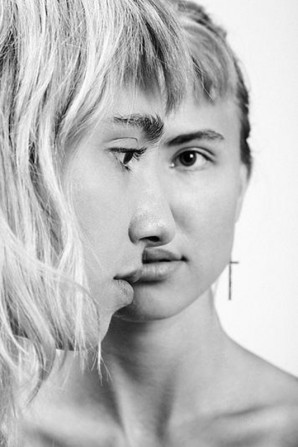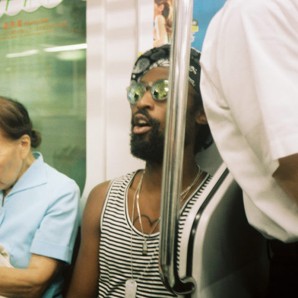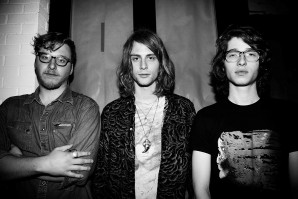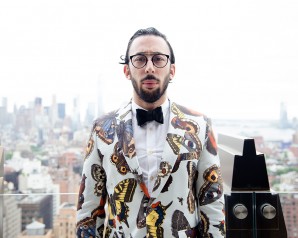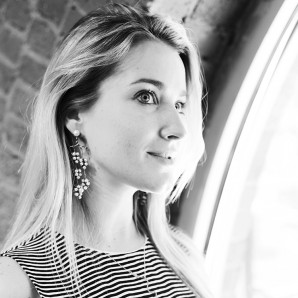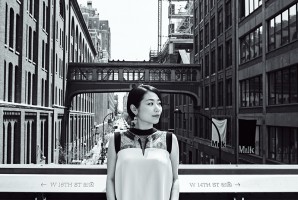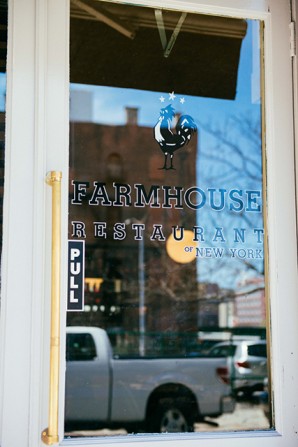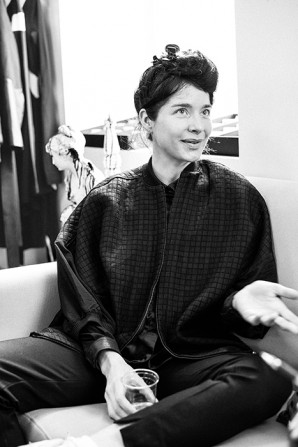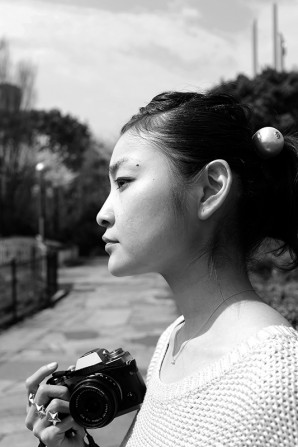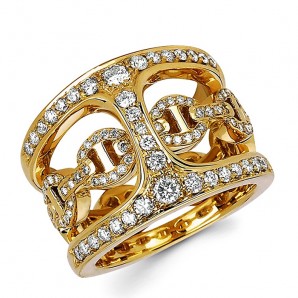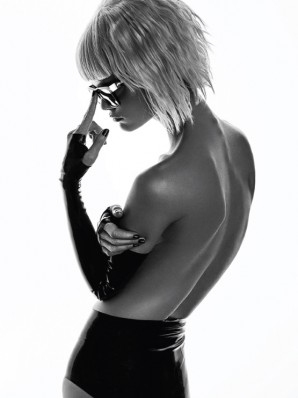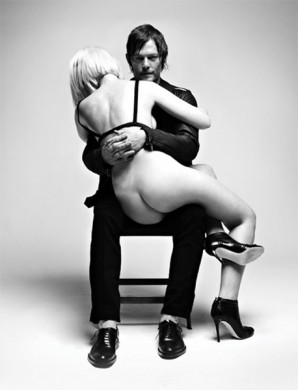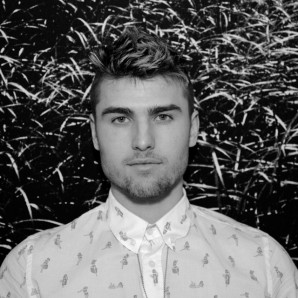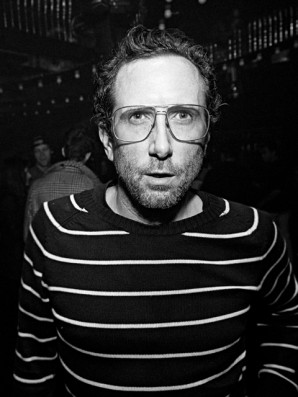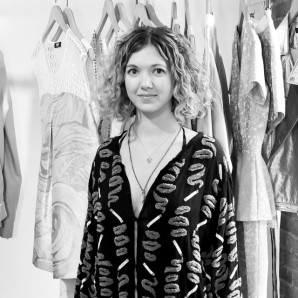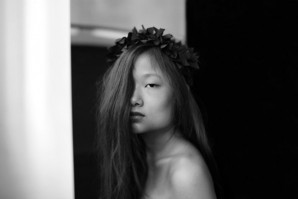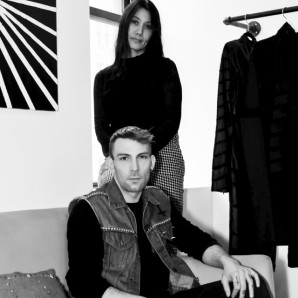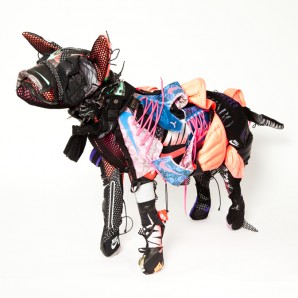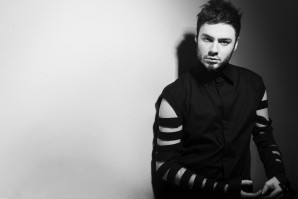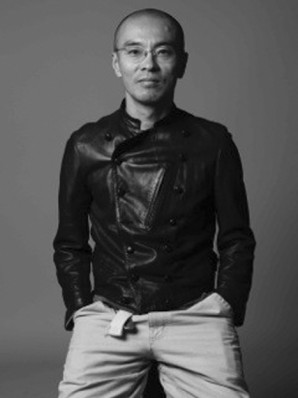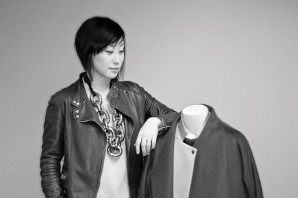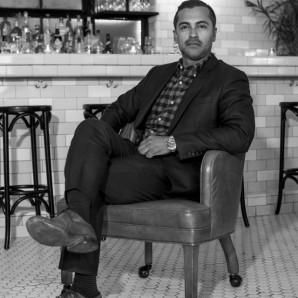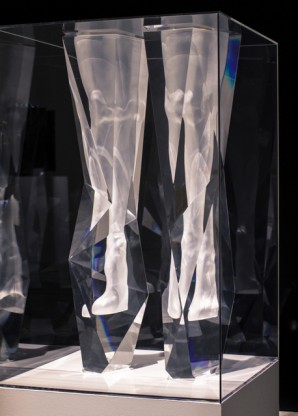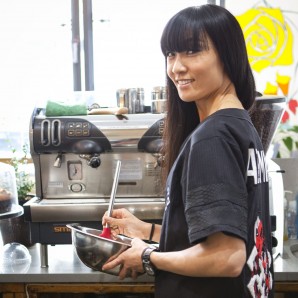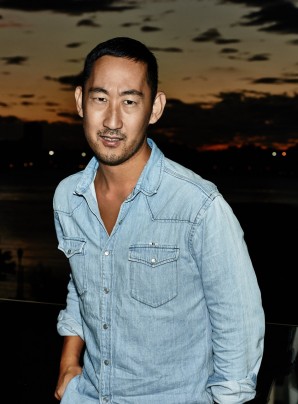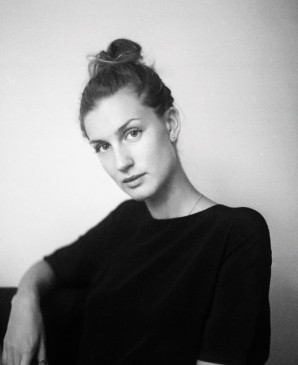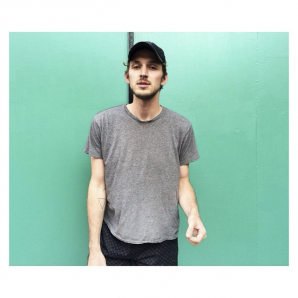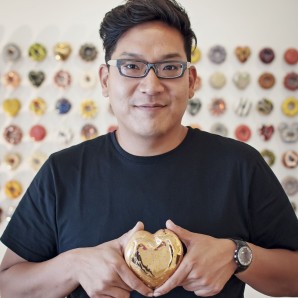"Cheng-Huai Chuang was introduced to fashion at a young age"
Judi Harvest INTERVIEW
“We’re all bees, we need to dance more and always search for beauty,” Judi Harvest proclaims. We had just been seated in her honeycomb-inspired downtown studio, next to an array of cheese, crackers and natural honey (produced by her beekeeping efforts!). Over the next few hours, we learned a lot about this notable woman.
An “artist, beekeeper and explorer,” she was born in Miami, yet developed as an artist in New York City and Venice. Incorporating her worldliness and passions, her artwork gives an exciting take on everything around her, from Matzo to beehives to pillows.
Here she gives TWELV magazine a look at her career and the ideas that went into exhibitions like “Room of Dreams” and “Edible Icons.”
---------- Judi Harvest's Interview ----------
1. How did you get into beekeeping?
In 2005, I heard there was a “colony collapse disorder” – the disappearance of honeybees. They were blaming it on things like cellphones and pesticides. As an artist who loves flowers, fruit and all things that are fresh and beautiful, it ignited something in me and I got involved. I raised bees on the roof of my studio, and I have 8 honeybee hives in Murano, in Venice. I harvest the honey twice a year, and the bees always make plenty. As time goes on, I have gotten deeper into it. I work with a foundation called “Bees Without Borders” and I am still always inspired by bees.
2. Besides for the honeybee, what else would you like to bring awareness to?
I noticed the honeybees and the glass workers had many things in common. They work within generations and both are disappearing. The glass factory I worked with had 75 workers and then they had 4. The reason was because people weren’t demanding handmade glass objects that are so fine, beautiful and maybe expensive as well. The glass was being copied in Asia or wherever and shipped into Venice. All of sudden, it became a huge project in my mind that I had to do something about. To really bring home the concept artistically, I had to make one object that people could hold and identify with as an object that was made with the glassworkers and the bees. So I made the honey vessels – 100 of them. I made them by taking chicken wire, shaping it, mixing the glass colors and putting the glass into the chicken wire. Whoever bought them got a jar of honey the bees made in Murano on the side.
3. When did you discover your passion as an artist?
I think I was around 2, I wasn’t a very good eater and my parents used to say, “You have to stay at the table until you finish eating.” So I took some food and I made a mural on the wall and then I thought I was really going to get into trouble but at that point they said “Well I guess she’ll be an artist.”
4. Is that why you work with food a lot now, as well?
For a long time, I painted with food and I do think that the relationship now with honey and some of the other artwork I’ve done with food could be a throwback to that.
5. Growing up, who was your biggest inspiration?
Artistically, Matisse. I think at an early age I loved Matisse, because his artwork is accessible for children to understand. The big cutouts and the bright colors just pulled me. He had lots of amazing philosophies about art and he didn’t even become known as Matisse until he was in his fifties. He was studying law, had appendicitis and got a watercolor set from his mom and he started doing art. He was a late bloomer, but he’s my hero.
6. How did you end up spending a lot of time in Venice, and how did that impact you and your work?
I was studying at the Studio School in New York and someone saw my work and offered me a show in Venice at a gallery. That was amazing for me, because it was the second show of my life. I went to someone’s house for lunch over there, they offered me an apartment for rent and I stayed there for 5 years. I studied Italian and learned about glassmaking and I met lots of wonderful people. I’m lucky because of the contacts I made and the experiences I had.
7. Tell us a bit about your exhibition “Room of Dreams.”
I was invited to create an everyday, universal object for an exhibition. I chose the pillow, where we rest our heads when we dream. I then constructed an installation of pillows using handmade Murano glass, the ancient material associated with Venice, together with sound, scent and light evoking beautiful dreams.
8. You once said that “The installation is an ethereal reminder that while our dreams may be a challenge to realize, nothing is impossible.” What are the dreams that you have realized?
This! Growing up in Miami, I dreamed of coming to New York and being an artist. It didn’t really make sense because a lot of people in Miami didn’t do that, they had other ideas. I still kept that dream all the way through high school and came to New York eventually, and then was offered the possibility of Italy. My passion for Italy and beekeeping pulled it all together.
My continuing dream is to bring this awareness about nature through art. There’s so much negativity and ugliness in the world. Artists have a responsibility not just to paint pretty pictures, but to make people feel something. It’s hard work but I think easy dreams are not really the ones you want to keep pursuing. You want to keep reaching higher.
9. How would you say art has changed since you entered the industry?
Social media has definitely changed things up. I now post on Facebook and Instagram because I have to. I actually know that that’s really the way of the future because you get the message out quicker and make art more accessible. But it’s not the be-all and end-all. You have to encounter art physically. In one of my exhibitions, I used honey-scented candles and specifically tactile art, because that’s what makes the experience more special than seeing it online.
10. Another exhibition you had was “Edible Icons” featuring Matzo. What were the ideas behind that?
Edible Icons are real Matzos covered with gold leaf in a labor intensive process, taking up to one month to complete. There were a few ideas behind that:
Matzos are the first fast food. They cook for only 18 minutes. I create a signed, limited edition of 18 Edible Icons every year. The number 18 means life in Hebrew.
Matzos are also a symbol of freedom since they were created by the Jewish people during the exodus from Egypt as something quick and durable to eat in the desert.
11. What is the next project that you are working on?
I’m currently working on some beehive inspired paintings and a disco ball beehive. They will all be shown in 2017.
INTERVIEWED & WRITTEN BY ADELLE GOLDENBERG
EDITED BY SUSAN SCHELL
PRODUCER MAKIKO ASADA
PHOTOGRAPHY: CHIAKI KATO
related posts
NEW TYPE #12: DROMe - MARIANNA ROSATI INTERVIEW
" I carry in my heart the values I've learned from my hometown - such as being true to myself and to my style"
IKEMEN #30: JORGE URENA
IKEMEN (ē´k´mɛn): Japanese Slang
"REALLY, REALLY, RIDICULOUSLY GOOD LOOKING PEOPLE"
NEW TYPE #11: LODOVICO ZORDANAZZO INTERVIEW
TWELV Magazine sat down with Lodovico Zordanazzo during his NYC visit to discuss his new collection and unique perspective on shoe design.
NEW TYPE #9: J.ELSTER - JENNIFER ELSTER Interview
TWELV Magazine recently visited filmmaker and designer, Jennifer Elster, at her studio, The Development.
NEW TYPE #8: MORGANE LE FAY - Liliana Casabal Interview
Noritaka Tatehana Exclusive Interview
The talented young Japanese designer, Noritaka Tatehana, who collaborated with Iris Van Herpen to design Lady Gaga’s shoes.
CHAOS CHAOS Interview
Formerly known as Smoosh, Asy and Chloe Saavedra of Chaos Chaos have always been a sister-sister duo.
THE KNOCKS Takes Tokyo
Recently, electro-pop duo, The Knocks, visited Japan to perform in the ARC+TWELV party at ARC, a newly opened venue in Tokyo.
CAVERNS Interview
TWELV had privilage of chatting with our friends from the band Caverns. The trio hail from NYC and are pretty much all over the music scene here!
Michael Phillips Moskowitz, eBay Chief Curator & Ed. Director, Interview
TWELV Magazine had the pleasure of connecting with Michael Phillips Moskowitz, the Global Chief Curator & Editorial Director at eBay.
NEW TYPE #7: EKAT - Katya INTERVIEW
"Introducing a new generation of designers"
Mai Mukaida Interview
Makeup Artist / CEO, Lalitpur.
Believes in the power of cosmetic
and lives with women in Nepal.
M KOUGER INTERVIEW: Farmhouse
With the fabulous Chloe 81, the oysterrific Chloe 81 Blue Room and the recently opened Farmhouse Restaurant, M Kouger has established an essential trifecta of entertainment in NYC’...
NEW TYPE #6: BERENIK- Veronica Brusa INTERVIEW
"Introducing a new generation of designers"
REI SHITO INTERVIEW
Street Fashion Photographer
and Style Blogger.
Loves in Street and the Beyond
Interview: The Refined Opulence of Hoorsenbuhs
The Hoorsenbuhs name has become synonymous with exclusivity, craftsmanship, and opulence. Once nothing more than the ambitious brainchild of creator Robert Keith, the brand has become a staple in...
NEW TYPE #5: HAZE Collection INTERVIEW
"Introducing a new generation of designers"
IKEMEN #29: JAY XERO
IKEMEN (ē´k´mɛn): Japanese Slang
"REALLY, REALLY, RIDICULOUSLY GOOD LOOKING PEOPLE"
Travis Bass Interview
New York’s Greenwich Village is now home to a new and amazing club created by the ultimate party planner/Pop Up Club designer, Travis Bass, called ZAZOU.
NEW TYPE #4: SAUNDER - Emily Saunders interview
"Introducing a new generation of designers"
NEW TYPE #3: GLORIA YU interview
"Introducing a new generation of designers"
IKEMEN #28: CJ Swanton & Mariko Derpa
IKEMEN (ē´k´mɛn): Japanese Slang
"REALLY, REALLY, RIDICULOUSLY GOOD LOOKING PEOPLE"
NEW TYPE #2: VINTI ANDREWS - Vinti Tan and Paul Andrews INTERVIEW
"Introducing a new generation of designers"
NEW TYPE #1: DEJAN DESPOTOVIC INTERVIEW
"Introducing a new generation of designers"
BEHIND THE SCENES #3: KATSUYA KAMO
TWELV's Behind the Scenes takes a step back and visits the masterminds behind the camera.
SUK CHAI INTERVIEW "SCHAI"
“My hands and eyes ooze desire to create when I touch something special. When I touch the “right” fabric, I usually close my eyes and visualize all the things I can create.”
IKEMEN #27: M KOUGER
IKEMEN (ē´k´mɛn): Japanese Slang
"REALLY, REALLY, RIDICULOUSLY GOOD LOOKING PEOPLE"
NORITAKA TATEHANA EXCLUSIVE INTERVIEW
NORITAKA TATEHANA EXCLUSIVE INTERVIEW
IKEMEN #26: KANAMI KAWAGUCHI
IKEMEN (ē´k´mɛn): Japanese Slang
"REALLY, REALLY, RIDICULOUSLY GOOD LOOKING PEOPLE"
MAISON KITSUNé INTERVIEW
During their first ever showing in New York Fashion Week, TWELV Magazine and I got to catch up with the talented duo behind the remarkable brand, MAISON KITSUNÉ, We spoke with Gildas Loaëc and...
MARIA HEDMARK INTERVIEW
Although Swedish transplant MARIA HEDMARK has only been in New York City for three years, her line, LINIE NYC, takes its name straight from the city that never sleeps.
IKEMEN #25: LANDON MILLER
IKEMEN (ē´k´mɛn): Japanese Slang
"REALLY, REALLY, RIDICULOUSLY GOOD LOOKING PEOPLE"

